The state budget collection of land-related revenues in Vietnam strengthened at the end of 2024? Does land use tax fall under budget revenues from land in Vietnam?
The state budget collection of land-related revenues in Vietnam strengthened at the end of 2024?
On November 30, 2024, the Prime Minister of the Government of Vietnam issued Official Telegram 124/CĐ-TTg of 2024 concerning strengthening the urging for state budget collection of land-related revenues in the last month of 2024.
To be specific, in Official Telegram 124/CĐ-TTg of 2024, it clearly states that, to contribute to achieving the highest possible state budget revenue goals and to pave the way for effectively implementing socio-economic development tasks in 2025 and the 2026–2030 period, the Prime Minister of the Government of Vietnam has required ministries and departments to undertake the following key tasks:
(1) Ministry of Finance:
- Direct the Tax Authority to enhance revenue management measures, strictly control the tax calculation, declaration, and payment processes, ensuring accurate and sufficient collection of revenues as per tax laws, and combat revenue loss for the state budget.
- Review and urge the prompt payment into the state budget for tax liabilities and land rent extended as per Decree 64/2024/ND-CP on extending the deadlines for value-added tax, corporate income tax, personal income tax, and land rent payment in 2024, and Decree 65/2024/ND-CP on extending the payment deadlines for special consumption tax on domestically manufactured or assembled automobiles once the extension period ends.
- Continue to rigorously enforce directives on enhancing financial discipline and rigor in managing the state budget, promote inspections to combat revenue loss and decisively recover tax arrears.
- Direct the Tax Authority to urgently cooperate with local departments to advise the Provincial and Municipal People's Committees to promptly address procedural and pricing challenges in real estate projects, expedite public investment disbursement, organize auctions, allocate and lease land, and urge prompt state budget collections for all revenues emerging as per budget laws. Intensify anti-evasion efforts regarding dual-pricing real estate transactions to foster a healthy real estate market.
Review all delayed projects with outstanding land levies, compile reports, and instruct relevant agencies to resolve issues for the prompt collection of overdue taxes and land levies into the state budget.
In cases of intentional delay or failure to comply, advise the Provincial and Municipal People's Committees to revoke projects in accordance with the law.
- Direct the Tax Authority and State Treasury to set up round-the-clock IT operation teams in the last month of 2024 to assist taxpayers in promptly fulfilling their state budget obligations.
(2) Ministry of Natural Resources and Environment:
- Continue organizing training, propagation, dissemination, and guiding local areas on the provisions of the Land Law 2024; closely monitor the organization and implementation of the Land Law nationwide; compile difficulties and obstacles to resolve within authority and report on matters beyond jurisdiction.
- Urge localities to swiftly complete issuing detailed regulations on the implementation of the Land Law 2024 as per the delegated authority and to formulate and enact new land pricing tables to facilitate efficient land auction and allocation for effective revenue generation while avoiding state budget losses.
- Enhance inspections of state management agencies and land users in local areas to detect and address violations.
(3) Ministry of Construction:
- Continue to effectively utilize the operation of the Task Force of the Prime Minister established under Decision 1435/QD-TTg of 2022.
- Review, urge, and guide localities and enterprises in resolving implementation difficulties for real estate projects, emphasizing legal and planning issues and projects with good liquidity and commercial and social housing initiatives to establish and stimulate real estate market growth, attract large investment projects, and create revenue sources for the state budget.
(4) Ministry of Planning and Investment:
Continue resolving institutional difficulties and promptly guide and urge solutions for arising problems, accelerate the execution and completion of crucial infrastructure projects, national priority projects, and inter-regional connectivity projects to timely bring them into operation, enhancing the value and auction potential of local lands, thereby leveraging increased land resource revenue.
(5) State Bank of Vietnam:
- Implement effectively Official Telegram 122/CĐ-TTg of 2024 enhancing credit management solutions for 2024.
- Direct commercial banks to continue reviewing and cutting inappropriate administrative procedures, thereby creating more favorable conditions for real estate businesses and homebuyers to access credit resources, promoting sustainable real estate market development and generating revenue sources for the state budget.
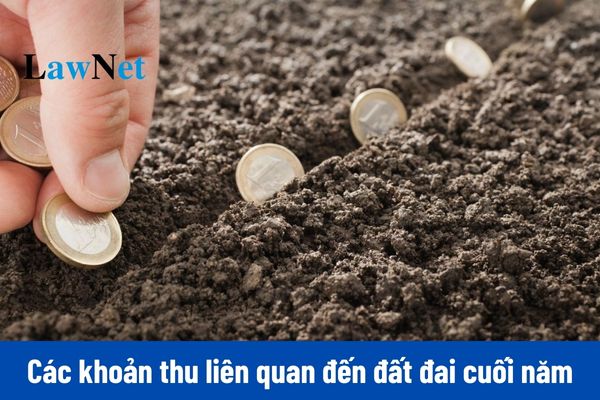
The state budget collection of land-related revenues in Vietnam strengthened at the end of 2024? (Image from the Internet)
Does land use tax fall under budget revenues from land in Vietnam?
Based on Clause 1, Article 153 of the Land Law 2024, the state budget revenues from land are stipulated as follows:
State Budget Revenues from Land
- State budget revenues from land include:
a) Land use fees;
b) Land rental payments;
c) Revenues from administrative fines related to land violations;
d) Compensation to the state for damage caused in land management and use;
e) Additional land use fees and additional land rental for projects that fail to utilize land or delay land use;
e) Land use tax;
g) Income tax from transferring land use rights;
h) Fees and charges in land management and use;
i) Other collections as stipulated by law.
...
As such, land use tax is included among state budget revenues from land.
Which entities shall pay land use tax in Vietnam?
* Taxpayers of Agricultural Land Use Tax
According to Article 1 of Decree 74-CP and Article 1 of the Law on Agricultural Land Use Tax of 1993, individuals and organizations currently using agricultural land are responsible for paying agricultural land use tax, including:
+ Individuals, households, and private households.
+ Individuals and organizations using agricultural land in areas allocated for the public interest of the commune.
+ Enterprises operating in agriculture, forestry, aquaculture, including forestry stations, agricultural stations, farms, enterprises, public service providers, state agencies, social organizations, armed forces units, and other units using land for aquaculture or agricultural-forestry production.
* Taxpayers of Non-agricultural Land Use Tax
Pursuant to Article 4 of the Law on Non-agricultural Land Use Tax 2010, taxpayers of non-agricultural land use tax in specific circumstances are as follows:
- Taxpayers are organizations, households, and individuals with land use rights subject to non-agricultural land use tax.
- In cases where organizations, households, and individuals do not yet possess a Certificate of Land Use Rights, Ownership of Housing, and Assets Attached to Land (hereinafter referred to as a Certificate), the person currently using the land is the taxpayer.
- Taxpayers in specific cases are identified as follows:
+ Where the state leases land to implement an investment project, the lessee of the homestead land is the taxpayer;
+ Where the land use right holder leases the land under a contract, the taxpayer is determined according to the agreement in the contract. If the contract does not specify the taxpayer, the land use right holder is the taxpayer;
+ Where land has been certificated but is under dispute, until the dispute is resolved, the current land user is the taxpayer. Tax payment is not a basis for resolving land use right disputes;
+ Where multiple persons jointly own the right to use a parcel, the taxpayer is the legal representative of the persons jointly owning the right to use that parcel;
+ Where the land use right holder contributes land use rights as capital to establish a new legal entity that has land use rights subject to tax, the new legal entity is the taxpayer.
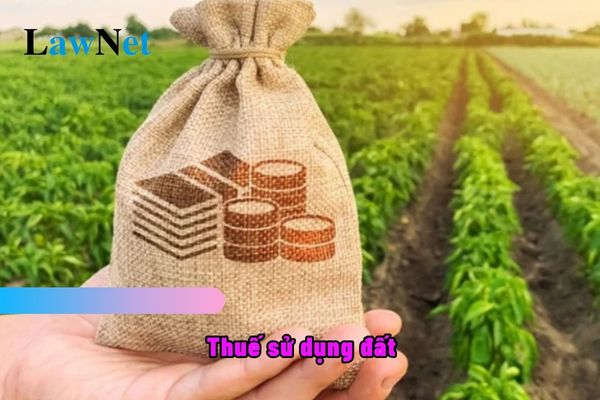

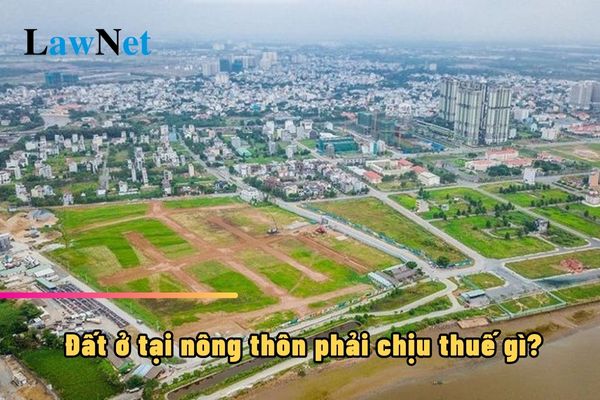
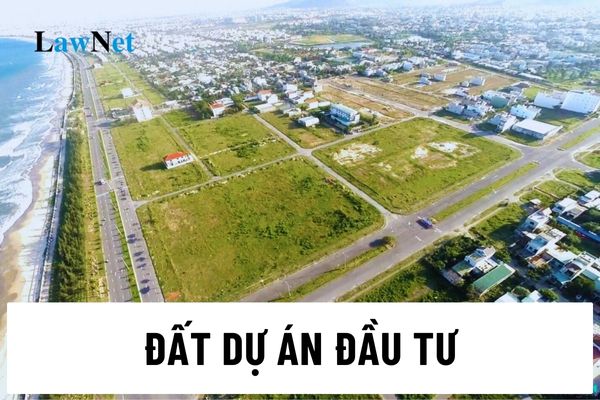
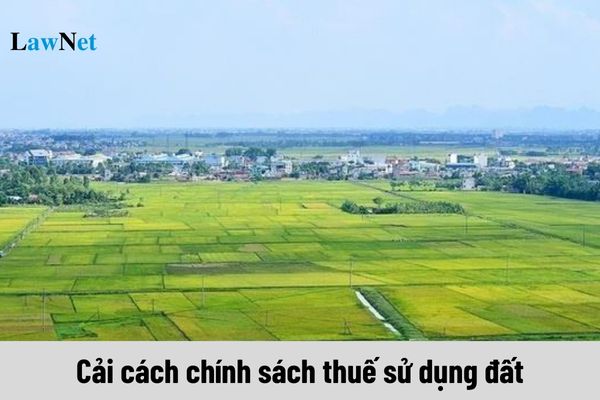
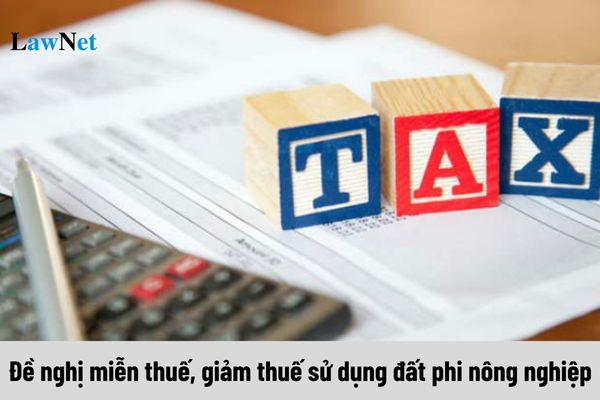
- Vietnam: How to purchase from the 2025 Trade Union Tet Market online? How much is the labor union fee for members?
- What is the online "2025 Trade Union Tet Market" program in Vietnam? What types of taxes do online sellers have to pay?
- What is taxable income? How to distinguish taxable income and income subject to tax in Vietnam?
- Shall owners of household businesses with tax debt be subject to exit suspension in Vietnam from January 1, 2025?
- What are the changes in tax refund procedures in Vietnam from 2025?
- What tax enforcement measures will be applied for taxpayers that owe tax debt in Vietnam from January 1, 2025?
- What 08 financial, banking, securities trading, and commercial services shall be exempt from VAT in Vietnam from July 1, 2025?
- Are healthcare services and veterinary services exempt from VAT in Vietnam from July 1, 2025?
- What is the total income between 02 declarations in Vietnam? What does the tax declaration dossier for individuals paying tax under periodic declarations Include?
- What are 03 professional and comprehensive 2025 Tet holiday announcement templates for enterprises in Vietnam? Where are the places of tax payment for enterprises in Vietnam?

